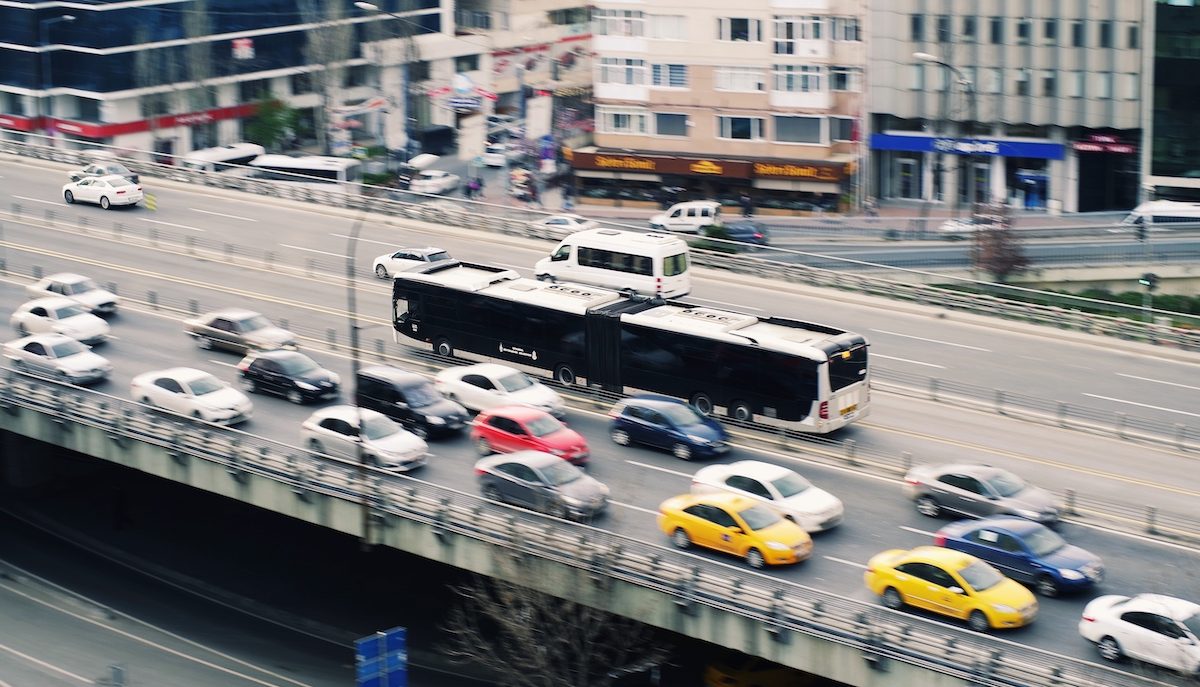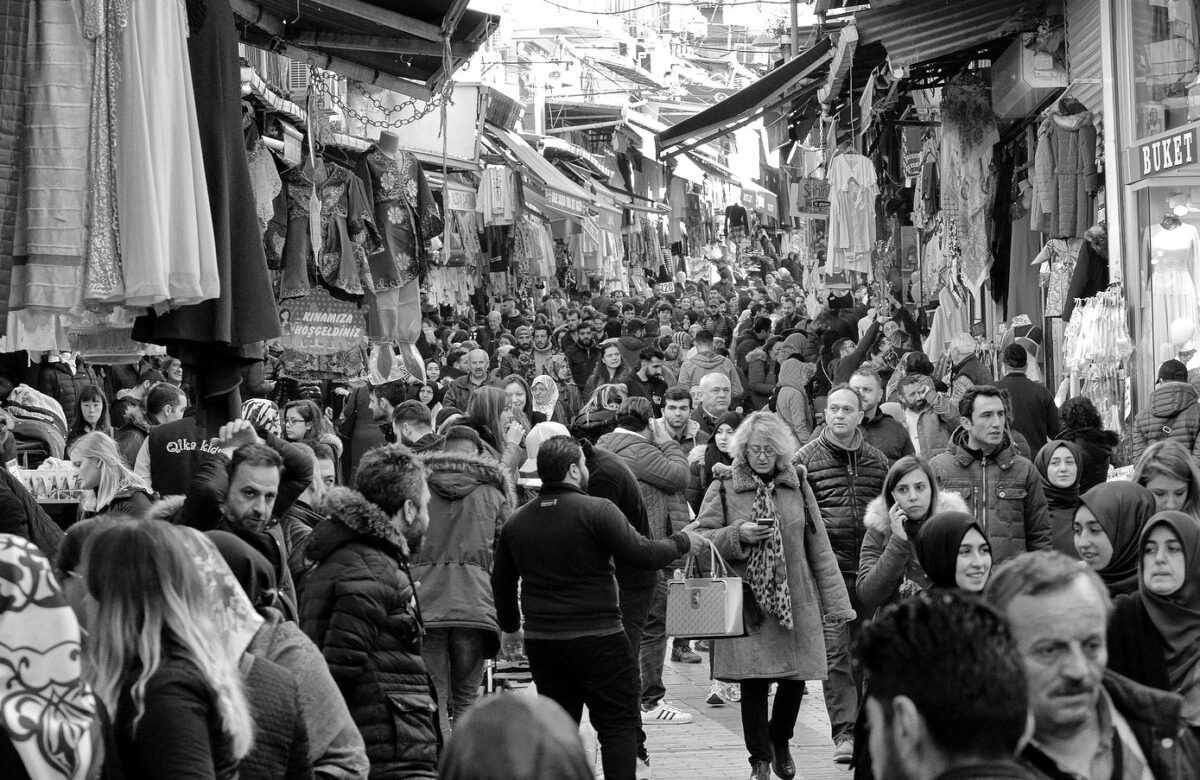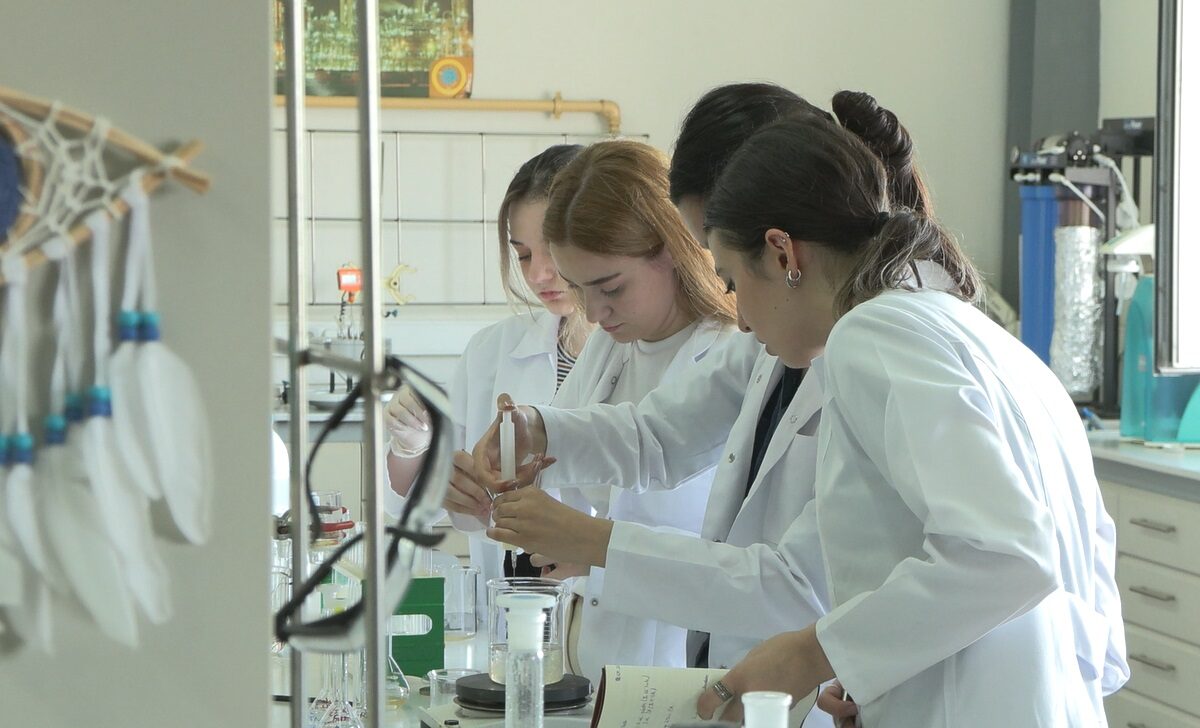
9 out of every 10 women who use the metrobus in Istanbul find security measures inadequate
- General
- 07/07/2023
- 317
University students in Istanbul conducted a survey by interviewing 227 women face-to-face at 44 metrobus stops. The study investigated how safe women who use the metrobus feel, whether the security measures taken are adequate and whether they have been exposed to any criminal activity. According to the survey, 9 out of every 10 women stated that they found the security measures on the metrobus inadequate. It was also revealed that 2 out of every 5 women had been exposed to crime before.
Senior students of Beykent University Department of Sociology conducted a survey to obtain scientific data that will enable the development of policies that will make women in Istanbul feel safer in public transportation. 6 university students, who set out to investigate women’s use of the metrobus by hours, the crime factors affecting women on the metrobus and whether the security measures taken make women feel comfortable, compiled the information they obtained as a result of their research. Seyranur Uykan (23), who said that they reached striking information with the project, said, “We developed this research as part of our final homework, but it needs to be developed further and different hours need to be examined. Therefore, we expect support from the Istanbul Metropolitan Municipality and other organizations.”
“THE TYPE OF CRIME WOMEN ARE MOST WORRIED ABOUT: SEXUAL ASSAULT”
Cefer Furkan Latifoğlu, a senior student in the Department of Sociology at Beykent University, said, “Our research is about women’s fear of crime in metrobus use. Today, approximately 7.5 million people use public transportation in Istanbul every day. IETT takes 4 million of this, and metrobuses take 1 million of the 4 million. There is a flow starting from Beylikdüzü district on the European side of Istanbul to Kadıköy district on the Anatolian side. This flow gives us a diversity. This diversity, which gives us social depth, reveals how differently we will see social segments. Research shows that it is women who feel the fear of being victimized in a crime (fear of crime) the most among social groups. Among these fears, the type of crime that women are most concerned about is sexual assault.”
“PHYSICAL FACTORS ALSO AFFECT WOMEN’S FEAR OF CRIME”
Stating that another important issue that came to the fore in the research was the physical factors at the metrobus stops, Latifoğlu continued his words as follows “When we look within the framework of Kadıköy and Beylikdüzü, we see that similar things generally frighten women. One of the most important results we frequently encountered in our research was that ecological or non-ecological situations make women fearful. For example, inadequate lighting at bus stops. In our research, women mentioned the lack of lighting in the evening hours and felt more insecure in such situations. On the other hand, to give a specific example, we received complaints from many women that the waiting area at Güzelyurt station is too narrow. They stated that the narrowness restricts their movement and therefore increases their fear. They demanded an increase in the number of security personnel. They also stated that the current security guards only sit in their cabins and are not involved in the area, and therefore they do not feel safe. In order to solve this problem, they underlined that rather than increasing the number of security personnel, broadcasting music over loudspeakers can have a relaxing effect, lighting can be increased and effective security training is needed.”
“4 OUT OF 10 WOMEN PREFER NOT TO GO OUT IN THE EVENING”
Expressing the numerical data of the study, İzlem Mızrak (22), one of the research students, said:
“We developed our project in order to obtain scientific data that will enable the development of policies that will make women in Istanbul feel better and safer in public transportation. When we look at the findings of our study, 2 out of every 5 women stated that they had been exposed to crime before. 1 out of every 2 women expressed fear of being exposed to crime. I can state that half of this fear is the fear of harassment and abuse. At the same time, 1 out of every 2 women stated that they witnessed a crime at bus stops, and only 1 out of every 4 women who witnessed a crime applied to the authorized unit. When we look at the reactions of the witnesses, we can say that half of them remained unresponsive. The striking point for us is that 9 out of every 10 women see security measures as inadequate. This is a very serious rate. As a result of all these, women who see themselves restricted take certain measures. 4 out of every 10 women prefer not to go out in the evening hours, while the rest take precautions such as taking self-defense classes, carrying pepper spray or taking public transportation with someone. In this society where women feel insecure, they try to take precautions in a restricted way. We interviewed more women in the 18-27 age group and started with demographic data. Women stated that they felt more fear in the evening and night hours. However, there were also some who felt fear in the morning hours. I can say that the age range of those who feel fear in the morning hours is higher, generally women over the age of 35 are more afraid in the morning hours.”
“WE COMBINED WHAT WE SAW IN CLASS AND THE SITUATIONS WE ENCOUNTER IN DAILY LIFE WITH THIS PROJECT”
Miray Zekiroğlu (23), a research student, said about the story of the emergence of the research topic: “The way men and women perceive the city is different. This is because women are more likely to be physically or verbally attacked than men. Therefore, women feel more insecure in the city and are afraid of being victims of crime. This reduces their participation in public transportation. The 6 of us who prepared the assignment use the metrobus a lot to get to and from school. Therefore, we can say that our research topic is a subject that comes out of life. We also notice the number of women at metrobus stops that differ according to the hours, situations such as sociocultural differences, and we have reinforced this with the course we have taken. Therefore, we have combined both what we have seen in the course and the situations we encounter in daily life with this project.”
Zekiroğlu said, “When we looked at the regions, we saw that the number of women decreased after a certain hour. As we went to Beylikdüzü, there was a decrease in the number of women after 18.15-18.20, while there was no change in their fears. When we look at young adults and women over 40 in terms of age, we can say that their fears are different. When we compare a woman in Kadıköy with a woman in Beylikdüzü, we can emphasize that they have a fear of crime towards late hours, and their fear increases as the hours progress.”
“THERE SHOULD BE A POLICE FORCE LIKE THE URBAN TRANSPORTATION POLICE”
From Beykent University Faculty of Arts and Sciences, Department of Sociology Assoc. Prof. Dr. Abdurrahman Yılmaz made evaluations on what practices can be taken to prevent the fear of crime within the scope of the research results. Yılmaz listed the measures that can be taken in 5 articles:
“We can say that in a city like Istanbul, where there is an intense public transportation journey, there should be a police force such as the urban transportation police.
“In order for women to use urban public transportation more freely, Istanbul Metropolitan Municipality has adopted the European Charter for Equality of Women and Men in Local Life in 2019 and a local equality action plan based on this charter. In two points of the plan, it is stated to make urban transportation safer especially for women and to create a safe city. One of the indicators of success is the number of studies to be conducted in this field. Therefore, this research conducted by young people constitutes one of the criteria for the success of the indicator accepted by IBB.”
“Based on these surveys, time and location-based risk analyses need to be conducted. Based on risk analyses, issues such as where and when measures need to be taken can be determined.
“Physical and environmental factors also have a significant impact on women’s fear of crime and perception of security. Research conducted in this context also gives us information about the measures that can be taken at bus stops.
“Private security at bus stops alone is not enough, the connection points of bus stops are also very important. Problem-based cooperation between law enforcement and local authorities and raising awareness will have a positive impact on women’s sense of security.”








